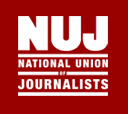
Even after the
disastrous by-election result at Norwich North, Labour could still win the next General Election. IF they make a clean break with neoliberalism and adopt unashamedly populist, anti-globalist left-wing policies.
Here's 10 things they'd have to do:
1. Renationalise the railways, public transport and public utilities.
2. Double old-age pensions and introduce free care for the elderly.
3. Reintroduce a staunchly progressive taxation system with a new top rate of 80%- not 50%- on people earning over £200,000.
4. Pursue a full employment economic policy.
5. Announce a referendum on Britain's continued membership of the EU and NATO.
6. Listen to genuine public concern over large-scale immigration.
7. Use British troops purely for the 'Defence of the Realm' and jettison the catastrophic policy of 'liberal interventionism'.
8. Reverse the disastrous ban on smoking in public places which has destroyed social life and seen thousands of pubs, bingo halls and social clubs close.
9. Announce the end to the creeping privatisation of the NHS, and bring back dentistry into the NHS fold.
10. Appoint a brilliant anti-war left-wing blogger to be the new leader of the party. (No, I'm not being big-headed, I'm referring to the likes of
Anna,
Charlie, Ken ,
Olching and the others in the links section on the right). They'd surely do a better job in getting support for Labour than Gordon Brown.
Of course, there's not a cat in hell's chance of any of the above policies being adopted by Labour, a party which, despite its name, is in hock to Kapital. Which means that the only thing the party can look forward to is its total destruction.
















